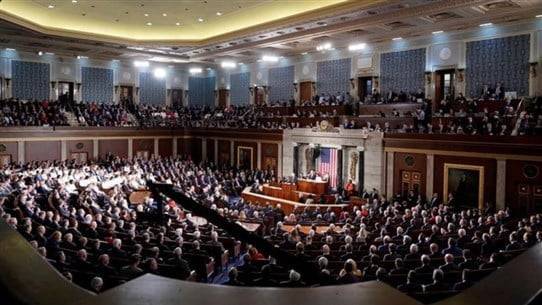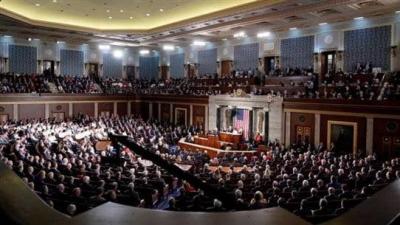The decision-makers in Washington are confident that both Democrats and Republicans believe in America's ability to lead effectively in the emerging global order, especially after Russia's influence has been diminished due to the Ukrainian war and significant shifts in Europe – military, political, and in energy. This American leadership, paired with Europe, is engaging with heavyweight nations such as India and Australia and is adopting a pragmatic approach to the Middle East, especially concerning the recent developments in the Gulf and the broader Middle East, particularly regarding Iran, Saudi Arabia, and oil dynamics. This follows the clear indication that the JCPOA nuclear agreement with Iran is in a state of clinical death, with no signs of revival on the horizon.
Despite the fierce competition between Republicans and Democrats in the upcoming midterm elections, there is a consensus on foreign policy extending from the competitive relationship with China to the overall geopolitical landscape shaped by the Ukraine war, including relations with Gulf Arab states and Iran. Meetings with key decision-makers in Washington revealed the following:
Regarding the crisis between the U.S. and Saudi Arabia after OPEC+'s decision to cut oil supplies by nearly two million barrels per day, both sides have opted for caution rather than haste, taking practical steps to maintain U.S.-Saudi relations.
The frank disagreement over the "OPEC+" decision was beneficial for both sides, though to a limited extent. The U.S. and Saudi leadership placed their strategic relationship above the political disagreements linked to the oil rationale, specifically concerning Russian President Vladimir Putin's gain from the "OPEC+" decision, leading to an impression that the Gulf Arab states sided with Putin amid the U.S. battle against him. This impression raised concerns in Congress among both parties, prompting the Biden administration to speak of a "review" of U.S.-Saudi relations.
In managing the crisis and stepping back, the Biden administration essentially did nothing; in other words, it did not review the relationship. The Saudi government also eased tensions by condemning Russia's invasion of Ukraine in international forums and providing $400 million to Ukraine, leading Ukrainian President Volodymyr Zelensky to express gratitude to Saudi Arabia for this support.
This caution encouraged both sides to discuss a more institutionalized and transparent relationship that exceeds mere emotional responses and mutual suspicions. Senior figures in Biden's administration spoke of having to adopt aggressive stances, motivated by a bipartisan consensus in Congress upset with the "impression" that Saudi Arabia stands with Russia against the U.S.
Both the impression and the timing are concerning for the Biden administration, which knows that the sharp election battle could be affected if public perceptions and timing turn against the Democratic Party. From the substantive perspective, the Biden administration recognizes that its positions and reactions have "exceeded" understandings and logic, particularly as it does not oppose Saudi Arabia and the UAE playing behind-the-scenes roles to influence Putin's actions to contain his exploits.
Practically, with the looming major crisis in December—the activation of the European decision for a complete boycott of Russian oil and gas, which the Biden administration was not particularly enthusiastic about—it will initiate oil actions, both from Saudi Arabia and the U.S., aimed at mending their strained relations. The strategic concern for the U.S. is ensuring that Saudi Arabia does not allow a Chinese base to be established on its territory. Issues like oil supply amounts are tactical rather than strategic, despite their significance.
Regarding the Islamic Republic of Iran, Washington's atmosphere suggests that the invitation to revive the JCPOA is ready, and today there is no opportunity for Tehran to breathe life back into the agreement if it wanted to—meaning the train has left the station after Iran escalated its positions. The reasons are many, including Iran's military alliance with Russia in Ukraine and Iranian repression against internal protests. According to a U.S. official, the Biden administration will not be able to revive negotiations with the Iranians "amid gunfire against fifteen-year-old girls." In other words, the calculations have changed now, as has the perception of Iran's internal, regional, and international capabilities.
The succession to Supreme Leader Ali Khamenei is a critical factor in the current calculations alongside the ongoing protests. The U.S. administration's assessment is that the protests and uprisings within Iran will not threaten the regime by themselves, but the convergence of protests, repression, and the succession might open the door to change. This is a concern for the Tehran regime, alongside the worry about having to fight in the military conflict in Ukraine alongside Russia, which carries costs for Tehran.
Today, Iran finds itself aligned with a losing side in a strategic war. China is unwilling to partner with the Islamic Republic of Iran, while Russia has sidelined Tehran from the global strategic equation. The regime in Tehran has become more "revolutionary" than it claimed, and it is now less influential in U.S. policy than it was during the height of the Vienna negotiations. Iran's refusal to allow the International Atomic Energy Agency to monitor its nuclear activities led to the failure of the agreement with Washington. Thus, Iranian rulers find themselves encircled and unable even to execute the calculated escalation they previously mastered. Today, Tehran faces the decision to escalate against the Kurds in Syria and Iraq or against U.S. interests in Iraq, which is a more costly endeavor.
The evaluations among Democrats and Republicans diverge regarding Iraqi Prime Minister Mohammed Shia al-Sudani, whom most Republicans and some Democrats consider a replica of former Prime Minister Nuri al-Maliki, who was closely aligned with Tehran. However, there are active officials within the administration regarding Iraq who say that Sudani does not concern them much because he speaks an acceptable language, like "regional balance and the necessity of continuing engagement with the Gulf."
However, Sudani raises concerns among former Republican administration officials "specifically because he is a replica of Nuri al-Maliki," as one put it, "which means he is under Tehran's control."
Iran's role in Syria also sees differing assessments among Democrats and Republicans. However, the Biden administration, according to one official's confirmation, intends to remain in Syria and Iraq and is unconcerned about Russia assigning Syria's management to Iran. The Biden administration believes that Israel will prevent Iran from overstepping in Syria with U.S. blessing. Its view is that Syrian President Bashar al-Assad is not in the process of being rehabilitated, either regionally or Arabically, and that Assad's Syria "will not regain its membership in the Arab League."
Regarding U.S. efforts to secure electricity for Lebanon from Egypt to Jordan to Syria via pipelines, which necessitate exempting Assad from U.S. sanctions under the Caesar Act, the Biden administration is proceeding with the project and denies that it rehabilitates Assad, stating, "These are merely pipelines," and not a rehabilitation process.
The completion of maritime border demarcation between Lebanon and Israel, with the approval of Hezbollah and without Tehran obstructing the agreement, is an important development in the Biden administration's view. Some Republicans criticize the agreement as not in Israel's interest and question Tehran's motives behind allowing it. However, those directly involved in this agreement indicate that "Hezbollah" has escalated rhetoric against Israel and threatened to target the Karish gas field, and when Israel responded with plans for a strong military response against "Hezbollah" should it act on its threats, "Hezbollah" was compelled to take a step back. This is compounded by Iran's unpreparedness for direct or indirect military confrontation with Israel.
Moreover, the leadership of "Hezbollah" is aware that dragging Lebanon into war with Israel and disrupting its ability to benefit from national gas and oil wealth will burden "Hezbollah" with more ire and responsibility, especially amid suspicions regarding its involvement in the port explosion due to nitrate storage. This, alongside the financial relief that helps "Hezbollah" and Iran amid continued sanctions on Tehran—even if relief arrives after five years, which is the expected timeframe for extracting oil and gas—is notable. For the Biden administration, what matters is that the agreement is, in essence, between "Hezbollah" and Israel, effectively neutralizing the border and negating the logic of resistance.
The overarching picture regarding geopolitical developments indicates that Russia's defeat in its war in Ukraine will signify the end of its role in the Middle East, and the United States will return forcefully to the region, positioning Iran, without Russia, as a diminished regional power. How will a weakened Iran react? Washington is not concerned about Iranian reprisals, whether nuclear or regional; it has calculated its responses.
Confident in its strategic posture, Washington regards energy as critically important, as it will first make Europe a continent reliant on the U.S., which is excellent for America's global leadership positioning, and second, it will render the U.S. the most influential country globally. This will undoubtedly reflect on the Middle East and on U.S. relations with vital countries in the region.




